Fritextsökning
Artiklar per år
Innehållstyper
-

Amorphous materials take centre stage when Orexo develops new formulations
Swift resolution but with maintained stability. Orexo’s new drug delivery platform tackles the problem of amorphous materials. “Our technology has the positive properties of the material, and it also cracks some of the problems,” says the company’s Research and Development Manager Robert Rönn.
-

BioVentureHub CEO: “Companies with a high degree of interaction achieve greater success”
For the first time since its inception, AstraZeneca’s BioVentureHub can now recruit new companies, as some of its tenants have grown significantly and are leaving the hub. This is the message from the biohub’s CEO Magnus Björsne in an interview, in which he also highlights a study that points out that companies with a high degree of interaction with other companies achieve greater success.
-
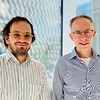
Läkare vid Karolinska presenterar rön som kan ge bättre behandling av leukemi
Forskare vid Karolinska universitetssjukhuset har hittat en metod för mer effektiv behandling av aggressiv blodcancer, enligt en ny studie.
-
Lancet knuffar ner NEJM från citattoppen
För första gången på 45 år petas New England Journal of Medicine från förstaplatsen på listan över de mest citerade vetenskapliga tidskrifterna. Ny etta är Lancet.
-

Konkurrenskraft, cancervård och MDR – läs krönikörernas tankar om branschen
Nya tankegångar, åsikter och framtidsvisioner från profiler i branschen, tillika krönikörer i Life Science Sweden och vår systertidning Medtech Magazine. Här har vi samlat några av årets krönikor.
-

Tablet treatment for hair loss approved in the USA
The US Drug Administration has given a thumbs up for the first tablet treatment for spotty hair loss.
-

Collaboration for a simpler production of gene therapies launched
A collaboration between universities and companies aims at providing better production methods for the development of gene therapies. The initiative is led by Johan Rockberg, Professor at KTH.
-

Study: Our behaviour may have been guided by wishful thinking during the pandemic
A new study suggests that we systematically underestimate health risks if and when it suits us. This was especially true during the pandemic, as our risk assessments may have been guided by wishful thinking rather than a rational perception of the risks.
-

Björn Arvidsson: “We need robust and recognized ecosystems for continued competitiveness”
“We have idea carriers and excellent innovation opportunities, and now we must invest in creating ecosystems that provide them with even better growth opportunities,” Björn Arvidsson writes in a column.
-
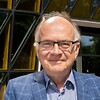
Göran Stiernstedt: “We are the world’s worst at continuity”
Failed investments in primary care, an unreasonable system with online doctors and a public failure at coordinating the healthcare IT system. Göran Stiernstedt does not mind his language when describing the shortcomings of today’s healthcare system. “It makes me extremely frustrated,” he says.
-

Marie Gårdmark: New incentives for orphan products on its way
"Let’s hope that the learnings from development of new therapies for rare diseases will spill over to more common conditions, orphan products paving the wave for drug development in a broader context", writes Marie Gårdmark in a column.
-

Bakslag för Roche i Alzheimerstudie
Det schweiziska läkemedelsbolaget Roche kunde i resultaten från en preventionsstudie mot Alzheimers sjukdom hos patienter med en genetisk mutation som orsakar tidig utveckling av sjukdomen inte se någon inbromsning eller förhindring av den kognitiva försämringen. Det framgår av ett pressmeddelande.
-

A growing industry in Denmark: “One new life science company a week”
The life science sector in eastern Denmark continues to grow in the number of employees, as well as the number of companies. An emerging problem is the shortage of labour, a new report reveals.
-

IVI’s Director General on establishing in Sweden: Will need up to 40 employees
The International Vaccine Institute, IVI, hopes to have its first staff on-site in Stockholm within a couple of months, says the institute’s Director General Jerome Kim in an interview with Life Science Sweden.
-

Växande bransch i Danmark – "Ett nytt life science-företag i veckan"
Life science-sektorn i östra Danmark fortsätter att växa, både i antal anställda och antal företag. Ett uppseglande problem är bristen på arbetskraft, enligt en ny rapport.
-
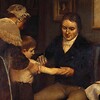
The first vaccine derived from cowpox
The British rural doctor could not forget the words of the peasant girl. Could that really be true? A couple of decades later, on 14 May 1796, he performed the world’s first smallpox vaccination, and a medical breakthrough had occurred.
-
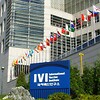
Now it’s settled: The International Vaccine Institute will be located in Stockholm
The International Vaccine Institute, IVI, is establishing itself outside South Korea for the first time. Last week, the Swedish Parliament ratified the agreement, which means that a branch of the institute will be located in Stockholm.
-

The first pharmaceutical for eosinophilic esophagitis approved in the U.S.
The U.S. Drug Administration has approved the drug Dupixent (dupilumab) to treat inflammation of the oesophagus of the type eosinophil esophagitis.
-

No demand for new Covid vaccine – “It will probably be discarded”
So far, just under 6 000 doses of the Covid vaccine from Novavax have been used in Sweden, leaving over 1.4 million doses in stock. “They will probably be discarded due to lack of demand in Sweden as well as globally,” says Sweden’s National Vaccine Coordinator Richard Bergström to Life Science Sweden.
-

Start-up developing ”digital twin” received award during the EIT Health Summit
A biotech company, a medtech company and a company in digital health were on the podium when the EIT Health Catapult awarded its winners.
-

Anna Törner: To kill your darlings
Hopes were high when Anna Törner and her colleague started a study on a dietary supplement that seemed unbelievably good. “Enthusiastically, we dreamed of exciting results and perhaps a publication in a high-impact journal,” she writes in a column.
-

Forskare utvecklar kontaktlinser för att bota grön starr
Kinesiska forskare har utvecklat kontaktlinser som ska känna av om trycket i ögat stiger och därefter frigöra läkemedel för att sänka trycket vid behov. Förhoppningen är kunna bota grön starr.
-

Hello Angelica Loskog!
Life Science Sweden would like to know more about Angelica Loskog and interviews her about her life as a researcher.
-
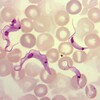
Noxious parasite forms hybrids and deceives the immune system
The small parasite Trypanosoma cruzi has a nasty ability to cause serious illness. Researchers at the Karolinska Institutet have now mapped its ability to deceive the immune system by forming new variants that are mixtures of different strains.